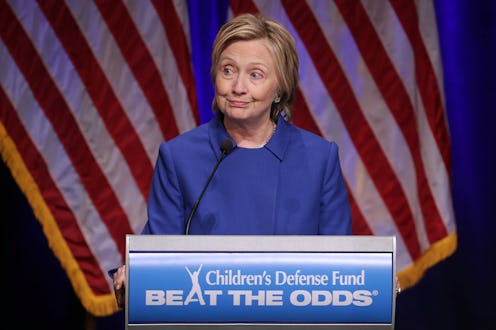News
How Many Overvotes Were There In 2016?
The results of the presidential election are under quite a bit of scrutiny right now. The closeness of the vote, as well as the recount initiatives in three key states and recent allegations of Russian hacking, have many people questioning the official results, and wondering if improperly cast ballots may have played a role in the outcome. Take the question of overvotes, for instance, wherein a voter casts a ballot for more than one candidate vying the same position. How many overvotes were there in the 2016 election?
Unfortunately, a whole lot of states haven't yet provided this information, so as of now, it's impossible to say how many overvotes there were in 2016. The limited data that is available, though, suggests that there weren't very many.
In Washington D.C., for instance, there were 243 overvotes in the presidential contest, which comes to .08 percent of the total ballots cast. In Hawaii, there were a combined total of 438 overvotes — just .1 percent of the vote. Wyoming had 278 overvotes, or about .1 percent of all of the state's ballots. Pennsylvania, Michigan and Wisconsin — three states with close results that Green Party candidate Jill Stein has targeted for recounts — haven't provided overvote tallies.
Overvotes are a concern, of course, because two opposing candidates can't both receive a vote from the same person.* Ballots with overvotes are considered "spoiled," and are disregarded when the votes are tallied.
Stein's recount initiatives hit an impenetrable wall on Friday, when the Michigan Supreme Court halted the in-process recount, which had begun the previous Monday. This means that even if the Pennsylvania and Wisconsin recounts find that Hillary Clinton won each state's popular vote (and to be clear, there's no reason to believe that they will), Donald Trump will still have the 270 electoral votes needed to become president.
Some are holding out hope that there will be a large number of faithless electors when the electoral college meets on Dec. 19, and that if enough defect from Trump, he might not become president. This is technically possible, as electors are allowed to vote for whomever they please, but it's unlikely. Only one Republican elector has announced his intent to vote for someone other than Trump, and he'd need to be joined by 37 others in order for Trump to fall short of the 270 electoral votes needed to win.
The simple fact is that Trump won enough states by enough votes that, barring any developments out of left field, he's almost certainly going to become the next president.
*This isn't the case with ranked choice voting, wherein voters choose several candidates in order of preference. However, no U.S. states currently utilize ranked choice voting for presidential contests.
